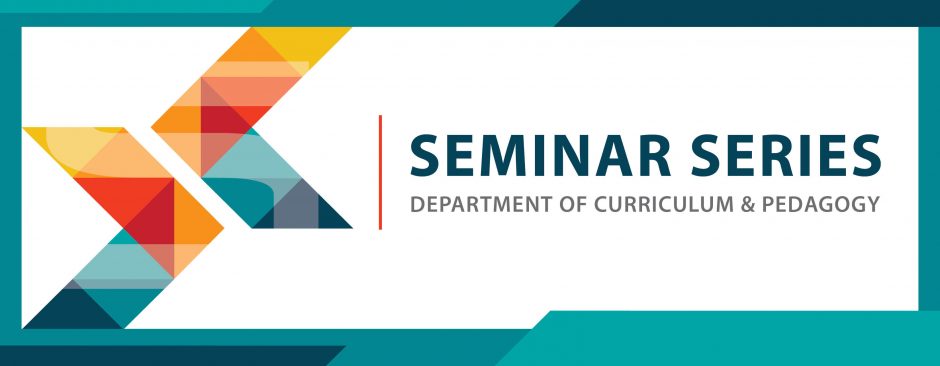
Dr. William E. Doll, Jr. | Visiting Professor at UBC, Emeritus Professor at Louisiana State University
April 11th, 2014 | 12:30-2:00pm | Scarfe 1107
View the Seminar Poster
Abstract:
The literature on Ethics is vast, well beyond the bounds of this paper, or my skills as a curriculum/complexity theorist. My focus then in this talk will be on the relation between ethics and morality: particularly whether a code of ethics helps or hinders one in making a moral choice. In common parlance, ethics and morality are synonymous – one is ethical when one is moral and one is moral when one is ethical. In contradistinction to the above traditional view, Michael Serres, always problematic says, “ Morality is rational and universal, whereas perhaps ethics depend on cultures and are relative, like customs” (in Conversations, 192). Morality according to Serres is part of being human, and therefore can be studied scientifically as an IS; Ethics, bound to a culture, “is aligned with an ideology.”
Paul Cilliers, a complexity theorist not fond of chaoticians – a title Serres adopts – takes a different but complementary view. He says that one of modernism’s missions was
to establish a universal set of rules able to regulate our behavior in every circumstance. But can behavior in accordance with an abstract, universal of rules be called ‘ethical’ at all? What kind of human being would act like this? Clearly some kind of automaton. (1998, 137).
To these two holding a non-traditional view of the relation between ethics and morality, I have added a third, Francisco Varela with his comments on ethics and practice.
This paper will look at the comments of these three: a French chaotician, a South African complexity theorist, and a Chilean cognitive science who in later years turned to Buddhism.
Short Bio:
Bill is a Visiting Professor at UBC and Emeritus Professor at LSU. He began his teaching career in 1953. Between then and now Bill has combined work in public and private schools, having taught school grades, K – 12, as well as university teaching at the undergraduate and graduate levels. He has been a school administrator, department chair and Director of Teacher Education, as well as school board member.
Bill’s international interests have taken him to five continents. In China he is part of the current curriculum reform movement. The title of his most recent book, a collection of writings over four decades, puts forth his main curriculum and pedagogic interests: Pragmatism, Post-Modernism, and Complexity Theory (edited by Donna Trueit).